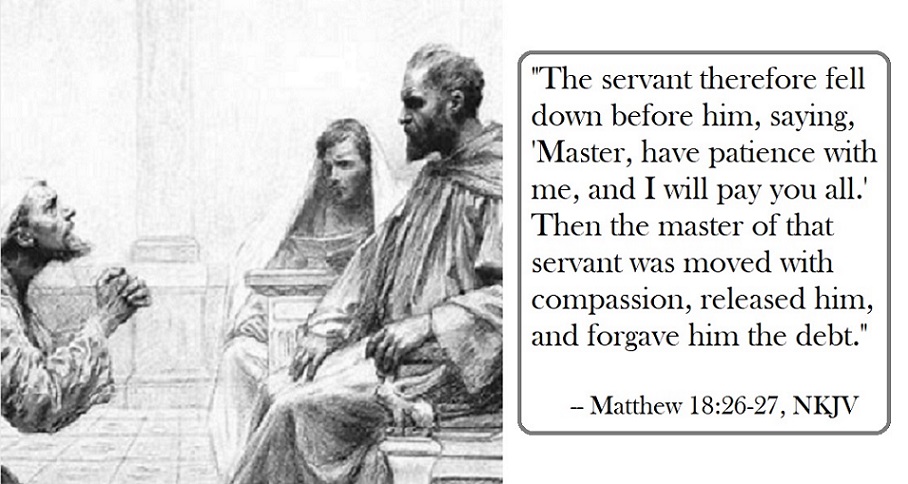“Go therefore and make disciples of all the nations…teaching them to observe all that I commanded you; and lo, I am with you always, even to the end of the age” (Matthew 28:19-20, NASB).
——————–
Contents:
1) Heirs (Cecil Willis)
2) Why Do You Associate with Sinners? (Frank Himmel)
3) “Training” the Tongue (Wayne Goff)
4) Bible “Math” (Part 3: “Division”) (video sermon, Tom Edwards)
5) News & Notes
——————–

-1-
Heirs of God
Cecil Willis
The privileges and blessings of the Christian are very great. But one of our greatest privileges is that of being “heirs of God” (Rom. 8:16). The value of heirship is determined by the value of the inheritance. The inheritance of faithful Christians is one that is “incorruptible, and undefiled, and that fadeth not away” (1 Pet. 1:3-5).
In order for one to have a valid claim on an inheritance, he must be able to establish the grounds of his inheritance. The Christian’s claims to an inheritance are indisputable. He is a son or a daughter of God. God said, “I will receive you, and will be to you a Father, and ye shall be to me sons and daughters” (2 Cor. 6:17-18). But Paul said that if we are children of God, “then (we are) heirs; heirs of God, and joint-heirs with Christ” (Rom. 8:16). Our sonship establishes the very highest kind of claim to the inheritance.
HEIRS OF THE PROMISE. The Bible speaks of several different things of which the Christian is the heir. There was a blessing connected with the “promise” that God made to Abraham. God told Abraham, “In thee shall all the nations be blessed” (Gal. 3:8). This statement to Abraham is called “the promise” in the New Testament. Our inheritance is through the “promise,” and not through the Law of Moses (Gal. 3:18). Thus Paul said, “And if ye are Christ’s, then are ye Abraham’s seed, heirs according to the promise” (Gal. 3:29). The Hebrew writer declares that God was “minded to show more abundantly unto the heirs of the promise the immutability of his counsel” (Heb. 6:17). Thus every blessing that God referred to as coming through that descendant of Abraham (Christ – Gal. 3:16), the Christian is heir to.
HEIRS OF RIGHTEOUSNESS. The Bible speaks of the righteousness that is of God. “…the wrath of man worketh not the righteousness of God” (Jas. 1:20). The “righteousness of God” does not here refer to God’s personal righteousness, but to God’s plan by which man can be righteous in his sight. Man can never stand righteous in God’s presence on his own merits alone. Paul says our salvation is not predicated on “our works done in righteousness, which we did ourselves,” but on his “mercy” (Titus 3:5). When man is ignorant of God’s righteousness, and seeks to establish his own righteousness in God’s sight, the result is he does not subject himself “to the righteousness of God” (Rom. 10:3). In order to be saved one must work righteousness. “. . . in every nation he that feareth him, and worketh righteousness, is acceptable to him” (Acts 10:35). The righteousness of God can only be found in the gospel. In speaking of the gospel, Paul declared, “For therein is revealed a righteousness of God” (Rom. 1:17). Thus when one is an “heir of righteousness,” he is heir to that purity and uprightness in God’s sight which is revealed in the gospel.
HEIR OF SALVATION. To be an heir through the promise or to inherit the righteousness which is through the gospel is to be an heir of salvation. The Hebrew writer said that angels are “ministering spirits, sent forth to do service for the sake of them that shall inherit salvation” (Heb. 1:14). What one receives through the promise, or the righteousness revealed through the gospel, is personal salvation. Man is not intrinsically righteous. He is a sinner. Thus he must be saved from his sin, by the promise, and through the gospel.
HEIRS OF THE KINGDOM. The term “kingdom” is used in at least two senses in the New Testament. Frequently it refers to that “kingdom” into which we were translated when we were delivered out of darkness (Col. 1:13). It therefore sometimes refers to the church, over which Christ rules as King. But on other occasions the word “kingdom” refers to that eternal kingdom. Jesus said, “Blessed are the poor in spirit: for theirs is the kingdom of heaven” (Matt. 5:3). On the judgment day, to some He will say, “Come, ye blessed of my Father, inherit the kingdom prepared for you from the foundation of the world” (Matt. 25:34). It is in reference to this eternal kingdom that James said, “Did not God choose them that are poor as to the world to be rich in faith, and heirs of the kingdom which he promised to them that love him?” (Jas. 2:5).
We must all be careful as to how we conduct ourselves. We must seek to please him whose heir we are. Of his heirs in the Old Testament, God said when they digressed: “I will smite them with the pestilence, and disinherit them . . .” (Num. 14:12). Let us therefore beware lest we lose our inheritance through the same kind of disobedience.
— Via Truth Magazine, XV: 26, pp. 3-4, May 6, 1971
——————–

-2-
Why Do You Associate with Sinners?
Frank Himmel
One of the early disciples Jesus called to follow Him was Levi, also known as Matthew. Levi was a tax collector. Levi gave a reception for Jesus and a great crowd of tax collectors attended. The Pharisees and scribes grumbled and asked, “Why do you eat and drink with the tax collectors and sinners?” (Luke 5:30).
Some viewed Jewish tax collectors as traitors because the taxes went to Rome. Additionally, the tax system then in place was conducive to fraud; doubtless some collectors were cheats (see Luke 3:12-13). Thus the Pharisees disparagingly viewed Levi and his friends as “sinners,” a term they used of those who in their view made no effort to live by the Law. Why would Jesus associate with such people?
Jesus answered, “It is not those who are well who need a physician, but those who are sick. I have not come to call the righteous but sinners to repentance” (Luke 5:31-32). Jesus associated with sinners for the same reason a doctor associates with the diseased: to heal them. Ray Summers observed, “What the Pharisees considered to be a discredit to him, he considered to be his very purpose in life.” Consider three observations about Jesus’ answer.
First, Jesus surely did not mean to imply that the Pharisees were well and not sinners. They were just as sick as the tax collectors, sick with self-righteousness, hypocrisy, and pride, as Jesus frequently pointed out. On this occasion He simply answered their question without exploring the question of who is a sinner.
Second, Jesus’ association with these sinners did not in any way minimize sin. He did not associate with them in order to join them in sin. Nothing about His association overlooked or condoned any wrongs they might be doing. To the contrary, He said His purpose was to call them to repentance.
Third, Jesus’ answer does not dismiss the frequent Bible admonitions about choosing our company carefully. Psalm 1 begins with such a caution. Several Proverbs warn of the danger of becoming like those we associate with (e.g., 22:24-25). Paul bluntly wrote, “Do not be deceived: ‘Bad company corrupts good morals’” (1 Corinthians 15:33). In context, he is likely pointing to the spread of doctrinal error as well as sinful conduct.
Christians need balance. We dare not be so foolhardy as to think we are too strong to be influenced away from doing right (1 Corinthians 10:12). But we must not err in the other direction either, assuming a Pharisaic self-righteousness that looks through eyes of disdain instead of mercy. We, too, are the sinners Jesus came to call to repentance.
— Via Pathlights, January 31, 2021
——————–

-3-
“Training” the Tongue
Wayne Goff
In our Wednesday night Bible study we have been looking at the proper use of the tongue. One question concerned the “training” of the tongue. “Training” means to “teach a skill or behavior,” and since the tongue itself has no mind but is only a tool of the human mind, it can be “taught” by teaching the mind. As simple as this concept is, it needs to be repeated often. The body, including all of its parts, is an instrument for the mind. Romans 6 discusses this in detail and places responsibility for the body’s actions on the person housed in that body! Even if someone is born with genetic predispositions, that person can control the body with the mind, and is obligated to do so. But back to “training” the tongue.
The New Testament teaches us how to properly use our tongue in many places. What good would these instructions do if we could not “train” the tongue to act in a “controlled” manner? So God expects us to both train and control the tongue.
Ephesians 4:15 — “That we should no longer be children, tossed to and fro and carried about with every wind of doctrine, by the trickery of men, in the cunning craftiness of deceitful plotting, but, speaking the truth in love, may grow up in all things into Him who is the head—Christ.” The truth will find a more receptive audience if it is spoken out of love, and not out of bitterness, anger, sarcasm, or superiority.
Ephesians 4:29 — “Let no corrupt word proceed out of your mouth, but what is good for necessary edification, that it may impart grace to the hearers.” Some people think that they have no ability to control their cursing. They have had a bad habit for so long that it just comes natural to them. Some curse without even knowing that they are doing it! But God expects us to respect those who hear us, and “corrupt” words disrespect all those to whom they are spoken. If we thought more of our neighbors than we do of ourselves, then we would do a better job with our words.
Colossians 4:6 — “Let your speech always be with grace, seasoned with salt, that you may know how you ought to answer each one.” Personally, I enjoy salt so much that my wife has to remind me to “taste the food before you salt it!” So I can appreciate how speaking with grace makes our words more tasty, more palatable, permitting our “answer” or “response” to others to be easier to accept. Let us not drive away people from the truth by our attitude.
1 Thessalonians 2:7 — “But we were gentle among you, just as a nursing mother cherishes her own children.” Paul taught the Thessalonians in a kind, gentle way when he converted them. But he still told them the truth! We cannot be so afraid of offending others that we compromise the truth! On the other hand, we can be both kind and firm in standing for what is right.
2 Timothy 1:13 — “Hold fast the pattern of sound words which you have heard from me, in faith and love which are in Christ Jesus.” So there is a standard of truth that is found in “the pattern of sounds words” taught by the apostles and prophets — the New Testament. Teaching error is “unsound,” and therefore spiritually sick and unhealthy.
— Via Roanridge Reader, Volume 36, Issue 5, Page 2, January 31, 2021
——————–
-4-
Bible “Math” (Part 3: “Division”)
Tom Edwards
To hear and see this video sermon that was preached February 7, 2021, just click on the following link while on the Internet:
https://thomastedwards.com/wordpress/Bible_Math_3.mp4
——————–
News & Notes
Folks to be praying for:
We extend our condolences to all the family and friends of Frankie Olivia Hadley who passed away February 3 — just 25 days prior to her 94th birthday. She and her husband Rex had been married for 67 years. Having lived as a Christian for 62 years, Frankie’s life will continue to bring comfort, encouragement, and blessings in the remembrance of those who knew her. Let us be keeping all of her family and friends in prayer.
Bennie & Deborah Medlock tested negative for covid-19 last week, which is good news; but Deborah still has 2.5 weeks more of quarantine. Her taste buds have also continued to improve, but not completely yet. Also, her back has been giving her some pain, which she attributes to the weather.
Nell Teague’s cancer is now in her throat, which she is receiving chemo for. (She is Bennie’s cousin.)
Those with covid-19: Heather and Cami Kellum, Emma Thomas, Joe Hersey, Tiffany Cothren, Tiffany’s children (Rex and Cora), and Darlene Tanner.
And also for continual prayer: Rick Cuthbertson, the staff and residents at the Baptist Village Nursing Home, Vivian Foster, Malachi Dowling, Larry & Janice Hood, Donald & Michelle Sears, Jim Lively, Rex Hadley, A.J. & Pat Joyner, Ronnie & Melotine Davis, Shirley Davis, Chris Williams, and Cameron Haney.
——————–
The Steps That Lead to Eternal Salvation
1) Hear the gospel — for that is how faith comes (Rom. 10:17; John 20:30-31).
2) Believe in the deity of Jesus Christ (John 8:24; John 3:18).
3) Repent of sins. For every accountable person has sinned (Romans 3:23; Romans 3:10), which causes one to be spiritually dead (Ephesians 2:1) and separated from God (Isaiah 59:1-2; Romans 6:23). Therefore, repentance of sin is necessary (Luke 13:5; Acts 17:30). For whether the sin seems great or small, there will still be the same penalty for either (Matt. 12:36-37; 2 Cor. 5:10) — and even for a lie (Rev. 21:8).
4) Confess faith in Christ (Rom. 10:9-10; Acts 8:36-38).
5) Be baptized in water for the remission of sins (Mark 16:16; Acts 2:38; 22:16; 1 Pet. 3:21). This is the final step that puts one into Christ (Gal. 3:26-27). For from that baptism, one is then raised as a new creature (2 Cor. 5:17), having all sins forgiven and beginning a new life as a Christian (Rom. 6:3-4). For the one being baptized does so “through faith in the working of God” (Col. 2:12). In other words, believing that God will keep His word and forgive after one submits to these necessary steps. And now as a Christian, we then need to…
6) Continue in the faith by living for the Lord; for, if not, salvation can be lost (Matt. 24:13; Heb. 10:36-39; Rev. 2:10; 2 Pet. 2:20-22).
——————–
Tebeau Street
CHURCH OF CHRIST
1402 Tebeau Street, Waycross, GA 31501
We are currently meeting for only our Sunday 10 a.m. worship service each week, due to the coronavirus situation.
evangelist/editor: Tom Edwards (912) 281-9917
Tom@ThomasTEdwards.com
https://thomastedwards.com/go/all.htm/ (older version of the Gospel Observer website, but with bulletins going back to March 4, 1990)


















